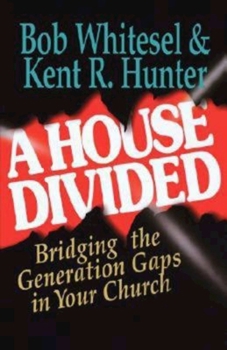A House Divided: Bridging the Generation Gap in Your Church
Select Format
Select Condition 
Book Overview
Customer Reviews
Rated 5 starsSame Gospel, Different delivery
I understand how reviewer Rodboomboom arrived at his conclusions in his review above. However, I think he missed the point of the book entirely. Is a hymn holy and sacred because of its style or because of the words in it? If you answer that a hymn is sacred because of its style then you will agree with Rodboomboom's review of this book. However, if you understand a hymn to be sacred because of the words of the hymn, not the...
0Report
Rated 5 starsA Bridge Over the Divide
Bob Whitesel and Kent Hunter in "A House Divided" have addressed the difficult issue that has divided the church for many years. They have taken the information we have known for some while about the three generations addressed in the book and applied that information in creative ways to bridge-building over the generational gaps. Their concept of the Tri-Generational Church as a holistic congregation offers much needed hope...
0Report














